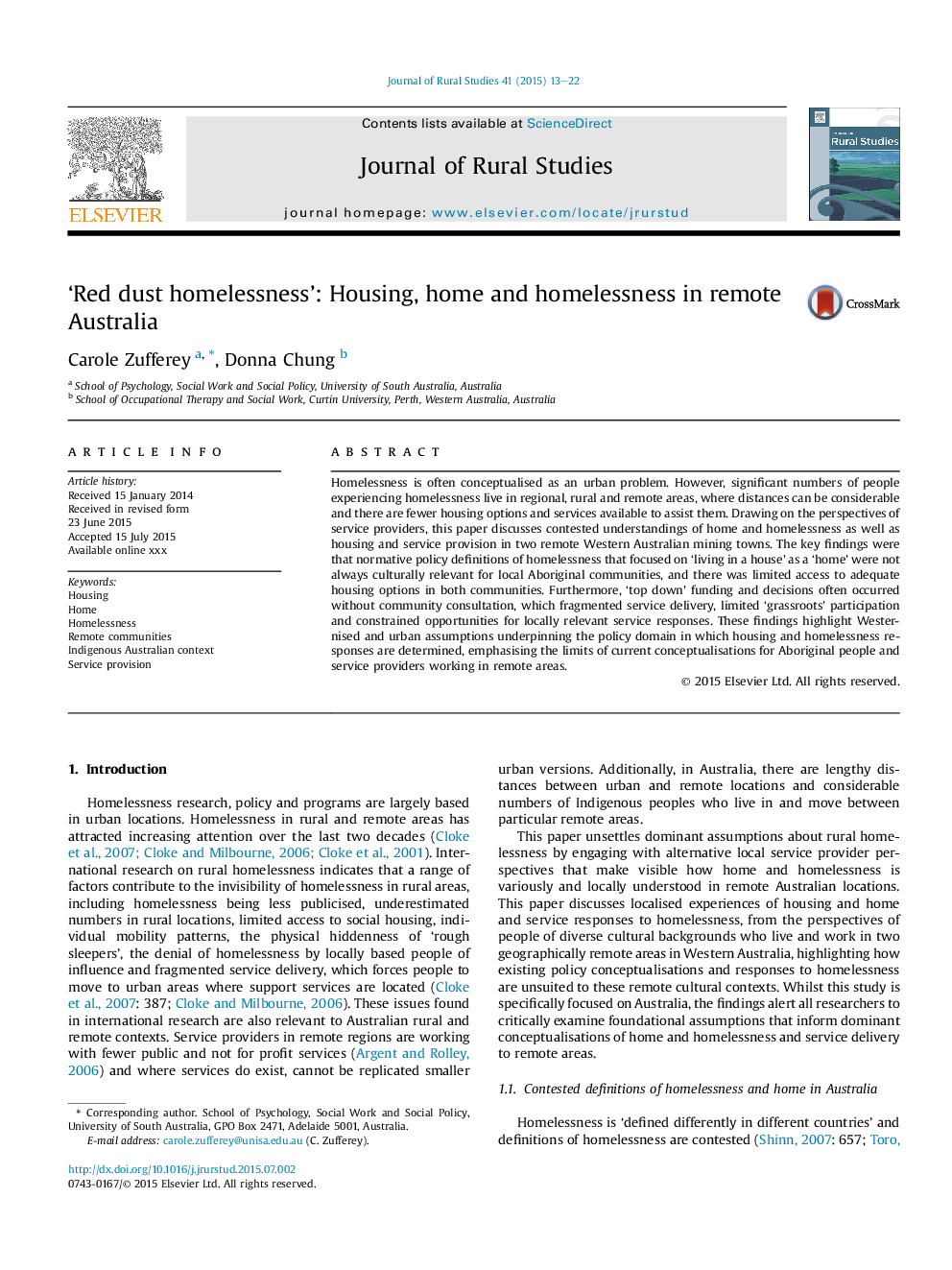| Article ID | Journal | Published Year | Pages | File Type |
|---|---|---|---|---|
| 6545598 | Journal of Rural Studies | 2015 | 10 Pages |
Abstract
Homelessness is often conceptualised as an urban problem. However, significant numbers of people experiencing homelessness live in regional, rural and remote areas, where distances can be considerable and there are fewer housing options and services available to assist them. Drawing on the perspectives of service providers, this paper discusses contested understandings of home and homelessness as well as housing and service provision in two remote Western Australian mining towns. The key findings were that normative policy definitions of homelessness that focused on 'living in a house' as a 'home' were not always culturally relevant for local Aboriginal communities, and there was limited access to adequate housing options in both communities. Furthermore, 'top down' funding and decisions often occurred without community consultation, which fragmented service delivery, limited 'grassroots' participation and constrained opportunities for locally relevant service responses. These findings highlight Westernised and urban assumptions underpinning the policy domain in which housing and homelessness responses are determined, emphasising the limits of current conceptualisations for Aboriginal people and service providers working in remote areas.
Related Topics
Life Sciences
Agricultural and Biological Sciences
Forestry
Authors
Carole Zufferey, Donna Chung,
